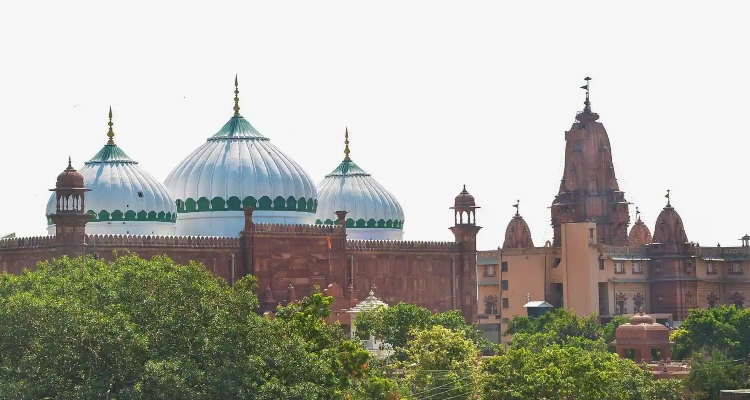
In the Krishna Janmabhoomi-Shahi Idgah case, the Hindu side informed the Allahabad High Court that neither the Sunni Central Waqf Board nor the mosque committee has provided any documents regarding ownership of the disputed property to date.
Hindu Side Allegations
The counsel for the Hindu side also stated that no electricity connection is in the name of the Waqf Board and mosque committee as they are allegedly using power illegally, and an FIR has been lodged against them by the electricity department.
These submissions were made during the hearing of a plea challenging the suit seeking the “removal” of the Shahi Idgah mosque adjacent to the Krishna Janmabhoomi temple in Mathura.
The matter is being heard by a single bench of Justice Mayank Kumar Jain regarding the maintainability of the suit, with the high court fixing May 20 for further hearing.
On Wednesday, the Hindu side argued that the compromise claimed in 1968 between the two sides was a “fraud” by the Sunni Central Waqf Board and the mosque committee. They also contended that the property belongs to the deity Katra Keshav Deo for over 1,000 years and that the birthplace of Lord Krishna was demolished in the 16th century, with a “chabutara” (platform) constructed as Idgah.
Muslim Side Arguments
Advocate Taslima Aziz Ahmadi, representing the Muslim side via video conferencing, reiterated to the court that the suit is barred by limitation. She stated that the two parties had entered into a “compromise” on October 12, 1968, and the said compromise was confirmed in a civil suit decided in 1974. Ahmadi argued that the suit, filed in 2020, is beyond the three-year limitation to challenge a compromise.
She further submitted that the suit seeks possession after the removal of the Shahi Idgah structure and restoration of a temple, indicating that the Idgah structure exists and the mosque management committee is in possession of it.
Previous Hearing
From the Hindu side, it was previously argued that the suit is maintainable, and the question of non-maintainability can only be decided after leading evidence. They contended that the application moved by the Muslim side under Order 7 Rule 11 of the Civil Procedure Code, raising questions on the suit’s maintainability, should be rejected.
The Hindu side’s counsel further stated that the deity was not a party to the claimed compromise in 1968 or the court decree passed in 1974, emphasizing that Sri Krishna Janmasthan Seva Sansthan, which allegedly made the compromise, was not authorized to enter into such agreements.




